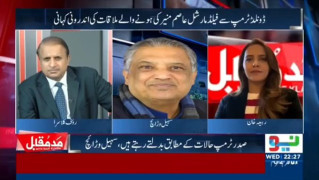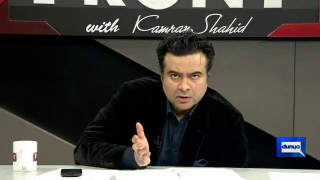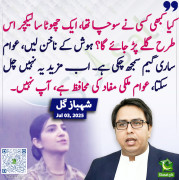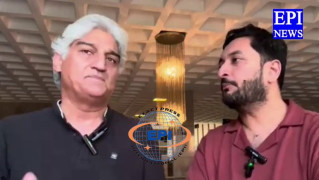M Ali Khan
Minister (2k+ posts)
[h=1]A Dream Gone Sour[/h] [h=2]In the 70-plus days since Pakistan's new prime minister took office, the country has suffered roughly 70 terrorist attacks. So why doesn't Nawaz Sharif have a counterterrorism policy?[/h]
[h=3]BY ARIF RAFIQ | AUGUST 22, 2013[/h]

Sixty-six years ago last week, Pakistan came into existence on the Night of Destiny, the holiest night in the Islamic calendar -- on which, according to tradition, the first verses of the Quran were revealed to the Prophet Muhammad over 1,400 years ago in the outskirts of Mecca.
For many Pakistanis, this was not mere coincidence, but evidence that the Muslim homeland was born of Providence. In what later became the state-backed nationalist narrative, Pakistan would not only be indelibly linked with the Islamic faith, but it would also be a nation with a mission beyond its borders -- a nation that would ostensibly help reawaken the sleeping Muslim world whose glory days seemed far behind it.
Alas, Pakistan today is, in the words of Roedad Khan, a bureaucrat who served five Pakistani presidents, "a dream gone sour." Pakistan suffered more terrorist attacks than any other country in the world in 2012, has the second-largest number of children without access to schools, and boasts one of the world's lowest tax-to-GDP ratios. The rancidity of the dream appears to grow with each passing day.
As for Islam, the glue that once bound Pakistanis together is now increasingly a dividing force that defines the blood-stained boundaries between them. The Islamic Republic is in the midst of what will likely be a long war within, as some jihadists who once served as instruments of the military fight their erstwhile patrons. They seek to impose a radical Islamic state upon Pakistan's 190 million people and subdue its religious minorities, including Christians, Hindus, Ahmadis, and Shiite Muslims, whom they believe to be kuffar, or infidels, and worthy of death.
This domestic threat looms large in the minds of Pakistan's military leadership. It is the threat from Pakistani jihadists -- not India, not Afghanistan, and not America -- that was the exclusive focus of the remarks by the Pakistani army chief, Gen. Ashfaq Parvez Kayani, at an Independence Day celebration on the evening of Aug. 13. Kayani warned Pakistanis not to bow down before terror and called on the country's political leadership to form a national security strategy. Pakistan, he said, was conceived as a land in which "the personal and religious liberties of minorities" would be secure like those of its majority populace.
In an allusion to Pakistan's growing sectarian strife, the army chief's address was preceded by the recitation of select verses from the Quran that were originally directed at warring Arabian tribes. These verses call on Muslims to stand together and avoid division, reminding them: "You were on the verge of falling headlong into the abyss of fire, but God saved you."
For Pakistan, the abyss of fire is indeed near. Tens of thousands of Pakistanis have been killed by terrorists and insurgents since the Sept. 11 attacks in the United States -- and the scourge of terror shows no signs of abating. Despite a number of relatively successful counterinsurgency operations, the Tehrik-e-Taliban Pakistan (TTP) and the Lashkar-e-Jhangvi (LeJ) remain capable of hitting most Pakistani urban centers. And the threat has only increased since the new federal government came into power in June.
In a little more than 70 days since Nawaz Sharif assumed the premiership for the third time, Pakistan has seen around 70 terrorist attacks claiming more than 350 lives. Over the past two months, moreover, there has been a major jihadist prison break; an attack on a regional office of the Inter-Services Intelligence (ISI), Pakistan's top intelligence agency; numerous attacks on mosques, Shiite congregations, and funerals; and various political assassinations.
Yet in the midst of this chaos, Sharif has largely been missing from the scene. Earlier this month, as the dead bodies piled up, the prime minister spent a week in Mecca on a non-obligatory religious pilgrimage he makes every year. Sharif delayed his trip in order to accommodate U.S. Secretary of State John Kerry's visit to Islamabad, but chose not to return home early as the terrorist attacks mounted and tensions with India grew more inflamed over a series of border-firings by both militaries. Having just convened the Defense Committee of the Cabinet (DCC) -- Pakistan's equivalent of the U.S. National Security Council -- for the first time in his 11 weeks in office on Aug. 22, he is far away from announcing a national security strategy.
Sharif's laissez-faire approach to national security has not gone unnoticed. There has been significant public outcry -- most notably on the country's two dozen cable news channels -- against his weak counterterrorism stance. In response, Sharif's interior minister, Chaudhry Nisar Ali Khan, held a press conference on Aug. 13 calling the anti-terror fight a "battle for Pakistan's survival" -- a transformation worthy of Jekyll and Hyde for a party that, as head of the federal opposition for the past five years, largely stood against major counterterrorism initiatives. In 2010, for example, Shahbaz Sharif, the prime minister's brother and a member of his Pakistani Muslim League (PML-N) party, sought dtente with the TTP, asking the militants to spare the Punjab province, where he serves as chief minister, rather than standing with the federal government against terrorism.
For its part, Sharif's government has tried to spin its inaction as the result of a deliberate and studied approach. Earlier this month, Khan, the interior minister, asked the public to remain patient, explaining that the government had not yet produced a final counterterrorism strategy because it has been doing its "homework." But few Pakistanis buy this explanation. The PML-N ruled Pakistan's largest province, Punjab, and led the opposition for the past five years as the terrorist threat metastasized. Favored to win in this year's polls, it was seen for the previous several years as the government-in-waiting. In other words, the PML-N had plenty of time -- including a one-month post-election transition period -- to get much of its homework done. Instead, it has allowed the terrorists to seize the initiative.
To the Sharif government's credit, leaked excerpts of its draft counterterrorism strategy -- yet to be announced -- include admirable police reforms and the necessary expansion of a de-radicalization program nationwide. Islamabad also appears keen on resuscitating the National Counterterrorism Authority (NACTA), designed to provide interagency counterterrorism coordination, but which was stillborn under the previous government because of bureaucratic wrangling. At the same time, however, it has proposed the creation of a joint intelligence secretariat, which -- in serving as a venue for much-needed intelligence sharing between the different federal and provincial security agencies -- would overlap with NACTA's mission statement. The potential redundancy could result in a messier bureaucratic maze in Islamabad and render NACTA ineffective.
Individually, most of these initiatives are promising -- assuming they are actually implemented. But so far, Sharif's government has failed to articulate an anchoring vision for its national security strategy. In doing so, it is putting the cart before the horse. Measures aimed at curbing terrorism can only work as part of a broader national security strategy -- and right now, Pakistan's foreign policy and counterterrorism strategies are still running at cross purposes. Most notably, critical jihadi segments that Pakistan's military created and nurtured to further its interests in Afghanistan and India have metamorphosed into the very militant groups that threaten the country's existence today.
For example, Asmatullah Moawiya, once a senior commander of the ISI-backed Jaish-e Muhammad (JeM), which operates against India in Kashmir, has since joined the al Qaeda-backed TTP. Moawiya defected to the anti-state camp after the 2007 military operations against the radical Lal Masjid and Jamia Hafsa, a mosque and adjacent madrasa that were challenging the writ of the state by engaging in vigilante activity in Islamabad and calling for the overthrow of the government.
Deeply bitter about the JeM's towing of the ISI's line, Moawiya now leads one of the country's most powerful militant networks, famous for its high-profile kidnappings and commando operations. The flow of jihadists from the pro-state to anti-state camp will continue as long as one arm of the Pakistani government supports militants against Afghanistan and India, and the other attempts to normalize relations with the two neighbors and does not adopt their radical interpretation of sharia law. The civilian firemen can only put out so many flames set by the military.
Still, there is no easy transition for Pakistan away from its dependence on the jihadi double-edged sword. Bringing an end to the industry of religious militancy inside Pakistan is highly dependent on co-related changes in the region. Most importantly, the Pakistani military is unlikely to part ways with militants in its tribal areas if a civil war breaks out in Afghanistan. To subdue the TTP, Islamabad needs the Afghan Taliban to become an important -- but non-dominant -- part of Afghanistan's political system. Were the Afghan Taliban able to impose the pre-9/11 order on Afghanistan, the TTP would be emboldened to push for the same radical Islamic state in their own country, Pakistan.
As prime minister, it is Sharif who must work to shape a regional order that gives Pakistan the domestic security it desperately needs. But he has largely delegated the responsibility of national security to his advisors, and -- as evidenced in his address to the nation on Aug. 19 -- seems more comfortable playing the role of CEO by dealing with the country's economic and energy challenges.
The pragmatic Sharif hinted at his desire to recast relations with Afghanistan and India, prioritizing economic engagement and avoiding "fruitless wars" with the latter. Yet he hasn't utilized the very governmental machinery -- namely, the Defense Committee of the Cabinet -- necessary for him to shape and push forward a foreign policy that balances the country's economic and security interests and allows for a clear transition away from the use of militant proxies that threaten Pakistan more than they further its interests in the region.
Up to this point, Sharif has relied on his kitchen cabinet-- a small group of advisors, including his brother --and private meetings with Gen. Kayani (with his brother tagging along) to discuss national security. Sharif has also tried to hold an all-parties conference to develop a consensus counterterrorism policy, but his political opponents have sabotaged that process. The net result is that Pakistan's national security policy is adrift, rudderless in a volatile region.
Moving forward, Sharif must convene weekly meetings of the DCC -- with the service and intelligence chiefs, and other senior ministers in attendance -- and begin a comprehensive conversation about the country's foreign and national security policy. Finally, Sharif must also engage the people of Pakistan directly -- perhaps through weekly television and radio addresses -- in a conversation about the country's many challenges and what role it should play in a changing region and world.
It might be that in such a conversation, they can together dream of a new Pakistan -- and help bring an end to the nightmare they live in today.
http://www.foreignpolicy.com/articl...our_pakistan_terrorism_nawaz_sharif?page=full
[h=3]BY ARIF RAFIQ | AUGUST 22, 2013[/h]

Sixty-six years ago last week, Pakistan came into existence on the Night of Destiny, the holiest night in the Islamic calendar -- on which, according to tradition, the first verses of the Quran were revealed to the Prophet Muhammad over 1,400 years ago in the outskirts of Mecca.
For many Pakistanis, this was not mere coincidence, but evidence that the Muslim homeland was born of Providence. In what later became the state-backed nationalist narrative, Pakistan would not only be indelibly linked with the Islamic faith, but it would also be a nation with a mission beyond its borders -- a nation that would ostensibly help reawaken the sleeping Muslim world whose glory days seemed far behind it.
Alas, Pakistan today is, in the words of Roedad Khan, a bureaucrat who served five Pakistani presidents, "a dream gone sour." Pakistan suffered more terrorist attacks than any other country in the world in 2012, has the second-largest number of children without access to schools, and boasts one of the world's lowest tax-to-GDP ratios. The rancidity of the dream appears to grow with each passing day.
As for Islam, the glue that once bound Pakistanis together is now increasingly a dividing force that defines the blood-stained boundaries between them. The Islamic Republic is in the midst of what will likely be a long war within, as some jihadists who once served as instruments of the military fight their erstwhile patrons. They seek to impose a radical Islamic state upon Pakistan's 190 million people and subdue its religious minorities, including Christians, Hindus, Ahmadis, and Shiite Muslims, whom they believe to be kuffar, or infidels, and worthy of death.
This domestic threat looms large in the minds of Pakistan's military leadership. It is the threat from Pakistani jihadists -- not India, not Afghanistan, and not America -- that was the exclusive focus of the remarks by the Pakistani army chief, Gen. Ashfaq Parvez Kayani, at an Independence Day celebration on the evening of Aug. 13. Kayani warned Pakistanis not to bow down before terror and called on the country's political leadership to form a national security strategy. Pakistan, he said, was conceived as a land in which "the personal and religious liberties of minorities" would be secure like those of its majority populace.
In an allusion to Pakistan's growing sectarian strife, the army chief's address was preceded by the recitation of select verses from the Quran that were originally directed at warring Arabian tribes. These verses call on Muslims to stand together and avoid division, reminding them: "You were on the verge of falling headlong into the abyss of fire, but God saved you."
For Pakistan, the abyss of fire is indeed near. Tens of thousands of Pakistanis have been killed by terrorists and insurgents since the Sept. 11 attacks in the United States -- and the scourge of terror shows no signs of abating. Despite a number of relatively successful counterinsurgency operations, the Tehrik-e-Taliban Pakistan (TTP) and the Lashkar-e-Jhangvi (LeJ) remain capable of hitting most Pakistani urban centers. And the threat has only increased since the new federal government came into power in June.
In a little more than 70 days since Nawaz Sharif assumed the premiership for the third time, Pakistan has seen around 70 terrorist attacks claiming more than 350 lives. Over the past two months, moreover, there has been a major jihadist prison break; an attack on a regional office of the Inter-Services Intelligence (ISI), Pakistan's top intelligence agency; numerous attacks on mosques, Shiite congregations, and funerals; and various political assassinations.
Yet in the midst of this chaos, Sharif has largely been missing from the scene. Earlier this month, as the dead bodies piled up, the prime minister spent a week in Mecca on a non-obligatory religious pilgrimage he makes every year. Sharif delayed his trip in order to accommodate U.S. Secretary of State John Kerry's visit to Islamabad, but chose not to return home early as the terrorist attacks mounted and tensions with India grew more inflamed over a series of border-firings by both militaries. Having just convened the Defense Committee of the Cabinet (DCC) -- Pakistan's equivalent of the U.S. National Security Council -- for the first time in his 11 weeks in office on Aug. 22, he is far away from announcing a national security strategy.
Sharif's laissez-faire approach to national security has not gone unnoticed. There has been significant public outcry -- most notably on the country's two dozen cable news channels -- against his weak counterterrorism stance. In response, Sharif's interior minister, Chaudhry Nisar Ali Khan, held a press conference on Aug. 13 calling the anti-terror fight a "battle for Pakistan's survival" -- a transformation worthy of Jekyll and Hyde for a party that, as head of the federal opposition for the past five years, largely stood against major counterterrorism initiatives. In 2010, for example, Shahbaz Sharif, the prime minister's brother and a member of his Pakistani Muslim League (PML-N) party, sought dtente with the TTP, asking the militants to spare the Punjab province, where he serves as chief minister, rather than standing with the federal government against terrorism.
For its part, Sharif's government has tried to spin its inaction as the result of a deliberate and studied approach. Earlier this month, Khan, the interior minister, asked the public to remain patient, explaining that the government had not yet produced a final counterterrorism strategy because it has been doing its "homework." But few Pakistanis buy this explanation. The PML-N ruled Pakistan's largest province, Punjab, and led the opposition for the past five years as the terrorist threat metastasized. Favored to win in this year's polls, it was seen for the previous several years as the government-in-waiting. In other words, the PML-N had plenty of time -- including a one-month post-election transition period -- to get much of its homework done. Instead, it has allowed the terrorists to seize the initiative.
To the Sharif government's credit, leaked excerpts of its draft counterterrorism strategy -- yet to be announced -- include admirable police reforms and the necessary expansion of a de-radicalization program nationwide. Islamabad also appears keen on resuscitating the National Counterterrorism Authority (NACTA), designed to provide interagency counterterrorism coordination, but which was stillborn under the previous government because of bureaucratic wrangling. At the same time, however, it has proposed the creation of a joint intelligence secretariat, which -- in serving as a venue for much-needed intelligence sharing between the different federal and provincial security agencies -- would overlap with NACTA's mission statement. The potential redundancy could result in a messier bureaucratic maze in Islamabad and render NACTA ineffective.
Individually, most of these initiatives are promising -- assuming they are actually implemented. But so far, Sharif's government has failed to articulate an anchoring vision for its national security strategy. In doing so, it is putting the cart before the horse. Measures aimed at curbing terrorism can only work as part of a broader national security strategy -- and right now, Pakistan's foreign policy and counterterrorism strategies are still running at cross purposes. Most notably, critical jihadi segments that Pakistan's military created and nurtured to further its interests in Afghanistan and India have metamorphosed into the very militant groups that threaten the country's existence today.
For example, Asmatullah Moawiya, once a senior commander of the ISI-backed Jaish-e Muhammad (JeM), which operates against India in Kashmir, has since joined the al Qaeda-backed TTP. Moawiya defected to the anti-state camp after the 2007 military operations against the radical Lal Masjid and Jamia Hafsa, a mosque and adjacent madrasa that were challenging the writ of the state by engaging in vigilante activity in Islamabad and calling for the overthrow of the government.
Deeply bitter about the JeM's towing of the ISI's line, Moawiya now leads one of the country's most powerful militant networks, famous for its high-profile kidnappings and commando operations. The flow of jihadists from the pro-state to anti-state camp will continue as long as one arm of the Pakistani government supports militants against Afghanistan and India, and the other attempts to normalize relations with the two neighbors and does not adopt their radical interpretation of sharia law. The civilian firemen can only put out so many flames set by the military.
Still, there is no easy transition for Pakistan away from its dependence on the jihadi double-edged sword. Bringing an end to the industry of religious militancy inside Pakistan is highly dependent on co-related changes in the region. Most importantly, the Pakistani military is unlikely to part ways with militants in its tribal areas if a civil war breaks out in Afghanistan. To subdue the TTP, Islamabad needs the Afghan Taliban to become an important -- but non-dominant -- part of Afghanistan's political system. Were the Afghan Taliban able to impose the pre-9/11 order on Afghanistan, the TTP would be emboldened to push for the same radical Islamic state in their own country, Pakistan.
As prime minister, it is Sharif who must work to shape a regional order that gives Pakistan the domestic security it desperately needs. But he has largely delegated the responsibility of national security to his advisors, and -- as evidenced in his address to the nation on Aug. 19 -- seems more comfortable playing the role of CEO by dealing with the country's economic and energy challenges.
The pragmatic Sharif hinted at his desire to recast relations with Afghanistan and India, prioritizing economic engagement and avoiding "fruitless wars" with the latter. Yet he hasn't utilized the very governmental machinery -- namely, the Defense Committee of the Cabinet -- necessary for him to shape and push forward a foreign policy that balances the country's economic and security interests and allows for a clear transition away from the use of militant proxies that threaten Pakistan more than they further its interests in the region.
Up to this point, Sharif has relied on his kitchen cabinet-- a small group of advisors, including his brother --and private meetings with Gen. Kayani (with his brother tagging along) to discuss national security. Sharif has also tried to hold an all-parties conference to develop a consensus counterterrorism policy, but his political opponents have sabotaged that process. The net result is that Pakistan's national security policy is adrift, rudderless in a volatile region.
Moving forward, Sharif must convene weekly meetings of the DCC -- with the service and intelligence chiefs, and other senior ministers in attendance -- and begin a comprehensive conversation about the country's foreign and national security policy. Finally, Sharif must also engage the people of Pakistan directly -- perhaps through weekly television and radio addresses -- in a conversation about the country's many challenges and what role it should play in a changing region and world.
It might be that in such a conversation, they can together dream of a new Pakistan -- and help bring an end to the nightmare they live in today.
http://www.foreignpolicy.com/articl...our_pakistan_terrorism_nawaz_sharif?page=full































